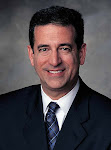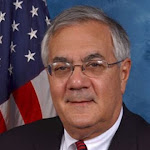
SUMMARY
*persistent high unemployment may mirror Jimmy Carter and shape perception of Obama administration.
*expert economists agree the stimulus package wasn't sufficient and more direct help from the Federal government is needed.
*Obama's priorities will be tackled in a specific order, but the order they are arranged in is a mistake and may cause him and democrats big problems.
*returns on huge investments need to come sooner, rather than later at the risk of endangering the administration's agenda and possible re-election.
We remain only eleven months after Obama's inauguration, and while we find ourselves in a much better position than we were during Obama's first few weeks in office, there is widespread discontent at the state of the economy as perceived by the common man.
We've freed ourselves from the recession, but the pain felt at home-still without real income except for an unemployment check makes it difficult to look at stock market numbers and agree with Robert Gibbs and Tim Geithner that the economy is getting better.
The erosion of patience is understandable when the ambitious promises behind much of the measures passed this year turned out to be overly optimistic.
Surely, there is no doubt that the real economy is improving, that there is more money being pumped into the economy by consumers in almost all sectors relative to this same time last year when we were in dire straits. The housing market in October saw a ten point one percent increase in home sales and car sales have come back strong even after the government's Cash for Clunker's program ceased to exist.
As extraordinary and confidence inspiring signs that these are, the administration's initial goal with the stimulus program was to avoid the jobs market slipping into ten plus percent unemployment rate territory; a big point of sale for the stimulus program. However optimistic you may want to be about what the stimulus has done for the economy, in this respect, it has been an utter failure.
It has also failed to spur consistent increases in retail sales, instead resulting in seesawing months were there is alternating growth and contraction. Retail sales tend to be important because growth in retail jobs fueled a lot of the job growth in years past.
What is the most worrying and most alarming is to see that this far through the stimulus package and being at the point where the economy is showing some strength (2.8% GDP growth revised in the third quarter), the job market is STILL shedding jobs. We have a long way to go before the unemployment rate gets back to normal. The longer that takes, the longer it will take for consumer spending to pick up. The longer that takes, the longer it will take for robust economic recovery to take hold.
If we all really wanted to be honest with ourselves, we can't say we didn't know that the unemployment rate would still reach ten percent. Expert economists, Paul Krugman and Mark Zandi both had testified to the congress and made it known to the president that the stimulus bill needed to be bigger. They warned that if the goal was to keep the jobs market in check, barring a bigger stimulus bill, the congress would need to come back to consider a second round of stimulus. Failure to do this would result in high unemployment for several years to come.
Zandi and Krugman both also predicted then and still do now that job growth will be stunted if there's no more stimulus, and thus real GDP growth will be flat because of stagnating consumer spending. So far they have consistently been proven right. Despite all this, there is seemingly little more focus from the administration except to hold a so called 'jobs' summit, giving Americans little reassurance that the economy will begin show visible signs of a recovery.
It is apparent that the Wall Street and bank bailout in combination with the stimulus package has left the country with no appetite to digest further government spending to save the economy, especially when it seems like the returns on our investments are either lost or too slowly materializing. The administration's handling of the TARP program ended too similar to George Bush and former Treasury Secretary, Henry Paulson; mismanaged and riddled with loopholes that gave banks the upper hand on important issues to taxpayers such as bonuses.
Because of this, the Obama administration is going to have a very tough time finding the votes to get any type of necessary second stimulus passed.
While it is of utmost importance that the Obama administration get to health care and reshaping one sixth of the country's economy as soon as possible, it is of even greater importance to the overall economy and even for Obama's re-election for the labor markets to recover.
Obama has already spent most of his political capital on health care. It seems like critics who claim the order of Obama's priorities are a mistake might have a point. Health care truly could've waited a few months, but those already unemployed for almost two years truly have no more time that they can spare.
If the state of the job market remains the same, regardless of what Obama accomplishes on health care, his presidency may mirror Jimmy Carter's and be defined majorly on persistently high unemployment and perhaps threaten chances of democrat's and his own re-election.
Those who worry about deficits and debt have legitimate reasons to worry, big deficits and debts are definitely not sustainable for long periods of time. However, most economists including Mark Zandi and Paul Krugman point towards the United States having an eighty percent debt to GDP ratio in 1950, they point to Italy and Belgium's around ninety percent debt to GDP during World War II, and they point to the ease they all had in getting out of the debt. Krugman correctly argues that the key to these types of debts aren't paying them off, but managing them and letting economic growth handle the rest.
Projected growth in the economy for the next several years dwarf the debt levels that economists believe are needed to really get the labor market back on track. America and congress simply need to get past the flawed notion that government stimulus and Keynesian economics doesn't work, when clearly, history proves otherwise.
There is some good news for the Obama administration. The recent jobs reports are showing that the job markets have slowed job loss and may within a relatively short amount of time begin adding jobs again, albeit at a likely slow pace.
It's unfortunate to say that at this point there is no honeymoon to protect the president. Patience has worn out with independents and patience is wearing thin even with the most loyal supporters. Despite what opposition may come, Obama really needs to take the reigns and really put the foot to the gas on the jobs situation at the risk of undermining his and the democratic party's agenda.
There is a definite opportunity for Obama to take this jobs summit and rally support for job stimulus even if it must be done under the guise of something else. This is going to take some incredible maneuvering, creativity, and leadership by the president.
This may turn out to be the administration's biggest flop or it may turn out to be its biggest accomplishment. There is still time to make this a victory, but whether or not the administration begins to see the need to again address the problem instead of giving the situation more time will really determine if they fail or are successful in 2012.
("The Obama Delusion" Special Feature will be postponed for the next topic. Stay tuned)






























































No comments:
Post a Comment